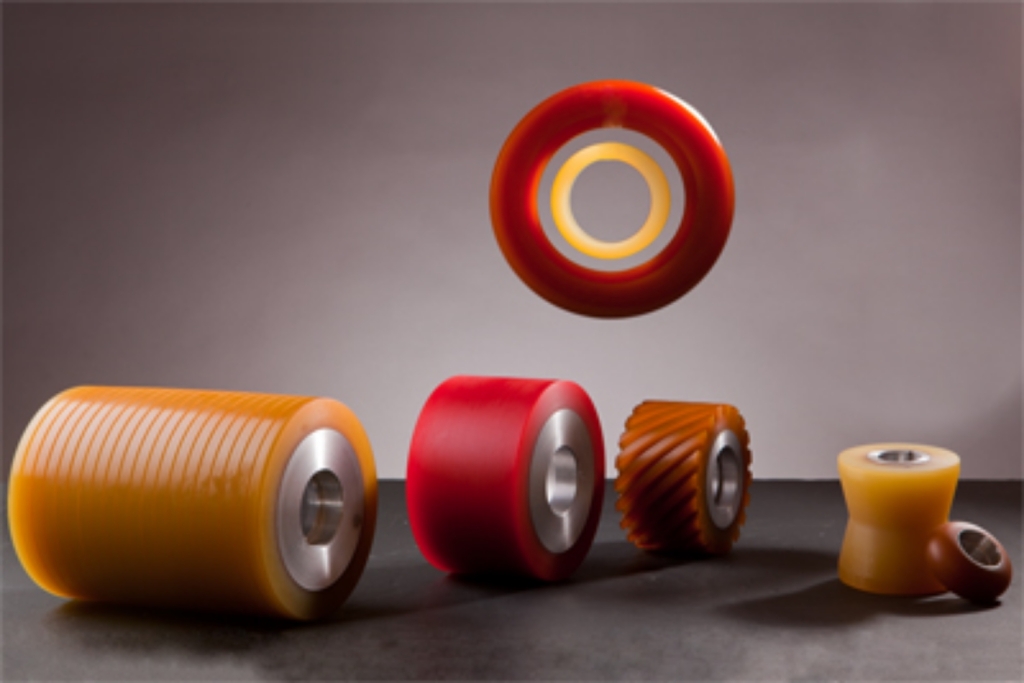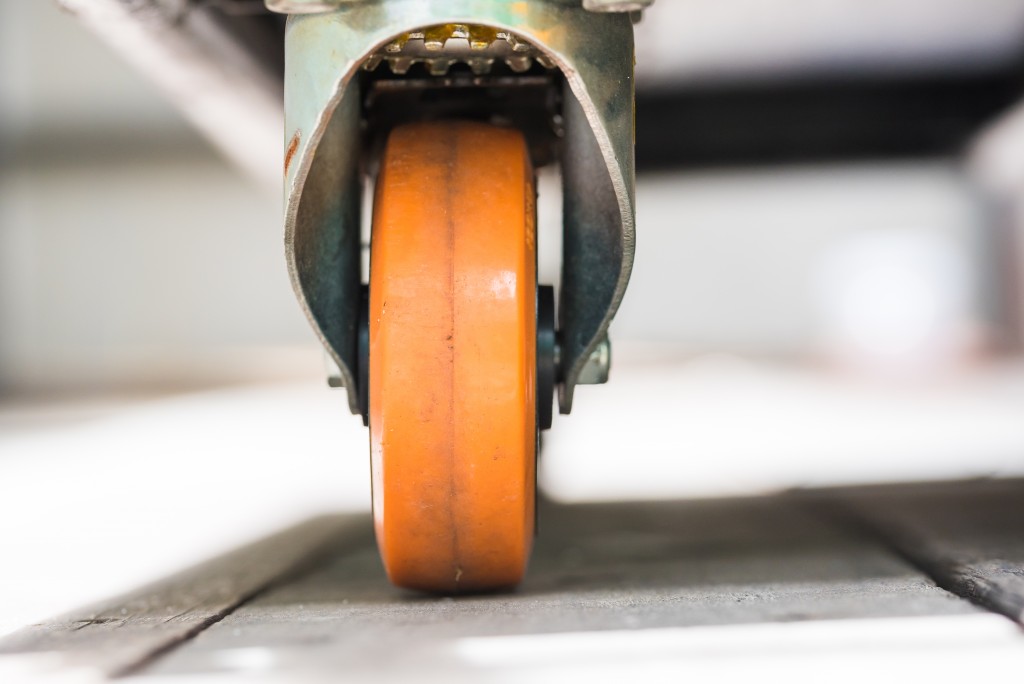Castor wheels are found in hundreds of different applications, from grocery shopping to moving huge quantities of manufactured goods in industrial and commercial settings. While there are quite a few factors when choosing the right wheels for your application, it’s the materials they’re made of that determine how they perform, how long they last, and whether they’re suitable for the flooring surface on which they run. Wheels also affect safety, rolling resistance or how easy the equipment is to maneuver, the load capacity for carrying items of different weights, and how they stand up to harmful substances such as chemicals or oil typically found in the setting they’re used. This all makes choosing the right wheels for your application a bit harder.
Materials in Castor Wheels

Wheel materials in castors abound, and buyers can choose between dozens of options. The most common types found in castors used in material handling equipment such as trolleys and carts, or larger pallet trucks and conveyor lines are polyurethane, nylon, rubber, steel, cast-iron, and pneumatic wheels. These cover most bases, but there are hundreds of other specialised options and derivatives, designed with a specific purpose or setting in mind. Wheel makers may also have their own proprietary variants carrying brand names. Let’s delve deeper into what’s on offer:
Why Choose Polyurethane?
These are some of the more popular options when it comes to wheels, as polyurethane combines the benefits of metals, plastic, and rubber into one practical and durable material. Poly wheels are versatile and found in many industrial and commercial applications, exhibit high durability and resistance to chemicals, oils, and other substances, and have high abrasion resistance, so endure little wear and tear over the long run.
Additionally, polyurethane wheels are non-marking, so work well on both hard and soft surfaces (think tile, wood, laminate, and concrete flooring), while still being able to support exceptionally heavy loads. Other benefits include low rolling resistance, meaning trolleys, carts and all other equipment fitted with poly wheels on all fours are also easy to steer and maneuver. The fact that there are several subtypes means material combinations and designs catering to different needs.
Buyers can choose from several types. Crowned poly wheels, for instance, have an extremely quiet urethane tape wound around an aluminium core, and this also means very low rolling resistance, high resistance to chemicals and abrasions, as well as higher loading capacities for larger areas like warehouse floors. Drive poly wheels, made of hard-wearing injection moulded polyurethane have exceptionally high load capacities and are seen in heavy-duty operations like conveyor systems. This can be replicated by wheels with poly outer treads and cast-iron cores sitting on industrial-grade bearings. Desk wheels have softer compounds and lower load capacities, so are generally reserved for items like shopping trolleys and office carts.
Using a variety of compounds (polyols and diisocyanates), additives (surfactants, catalysts, fillers, stabilisers etc.) in either liquid casting or injection moulding as well as secondary production methods allows for a large variety of polyurethane wheels used in dozens of applications.
Alternatives to Poly Wheels

Nylon
Nylon wheels are good in areas where chemical, corrosion, and low rolling resistance are necessary. They’re lightweight, easy to maneuver, and can be used on hard and smooth surfaces alike. They’re also non-marking. Typical uses are in the automotive, chemical, and metal-working industries.
Rubber
Though polyurethane wheels have supplanted rubber varieties in many areas, the latter are still a low-cost and effective option that offers good grip across different surfaces both indoors and outdoors, increased maneuverability, and quiet operation. Rubber wheels are known to soak up vibrations and obstacles, and won’t leave marks. Their downsides compared to poly wheels are their lower loading capacity, slightly higher rolling resistance, and with softer compounds, advanced wear.
Steel and cast-iron
Both materials work flawlessly in heavy-duty uses and settings where large load capacities and high heat resistance are needed. Steel is durable, rigid, and resistant to wear and chemicals, solvents, and oils, but not suitable across all floor types as it leaves obvious marks. Cast-iron wheels take things up a notch, performing better in all areas (with the exception of noise levels, corrosion resistance and surface marking). They’re good for high-weight loadings in the auto, construction, and aerospace industries as well as industries where high temperatures are a factor, such as bakeries and food processing.
Pneumatic Wheels
These are filled with air to provide better cushioning and more control over uneven areas and surfaces. They’re typically found in outdoor and gardening equipment, such as wheelbarrows and garden carts.
Choosing the Right Wheels
While materials are the main factor that determines which wheels you choose, sizes, bearings and mounts that attach the wheel to the hardware (essentially making a castor) are also important. Bigger wheels for instance mean lower rolling resistance, and absorbing bumps that much easier, while smaller wheels work better in tighter spaces and with smaller carts and trolleys. Sizes range from 75 to 200mm and several options in between.
Bearings and inner cores affect loading capacities, rolling resistance, and longevity. Sealed bearings for instance are good when transporting goods of low to medium weight, while roller bearings are more heavy-duty and found in specialised uses.
Lastly, the mounting hardware affects things like maneuverability, safety, and durability. This allows for wheel and castor assemblies that are either fixed, swivelling, and braked or non-braked. These can be had in varying combinations, depending on your needs.


Leave a comment